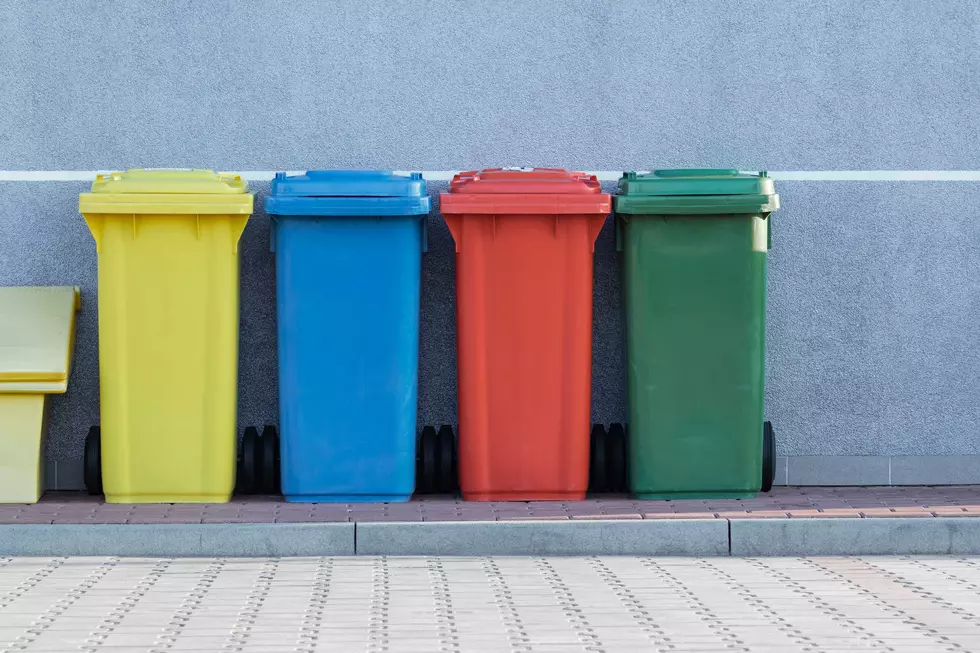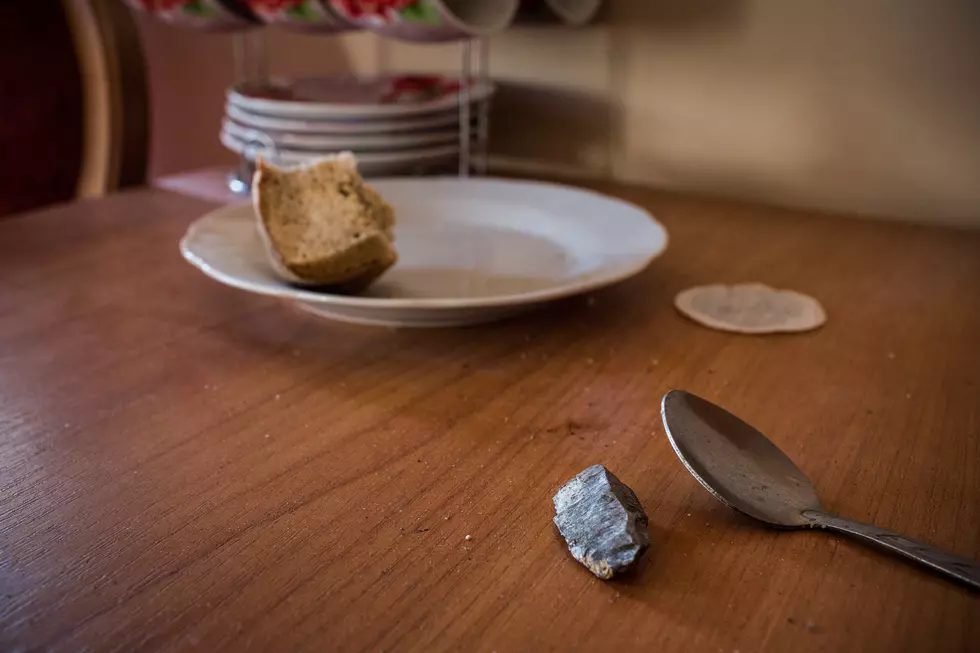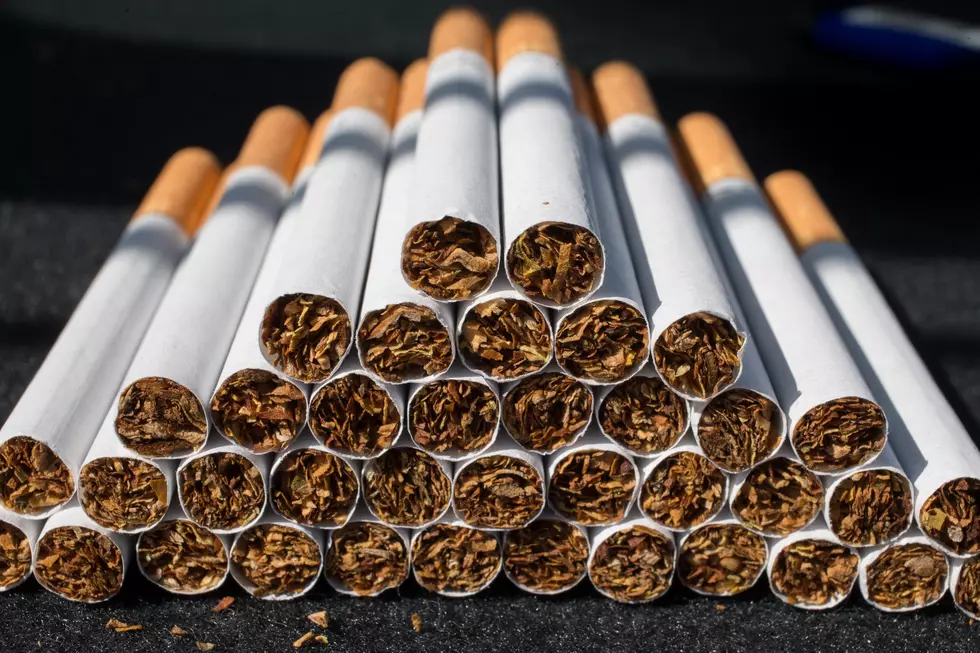
It’s Illegal To Throw 11 Things Away With Regular Trash In New York
A new year often brings decluttering and deep cleaning. But, there are some things that you cannot or should not just toss into your normal household trash in New York State.
These 11 Items Are Illegal To Throw Away In New York State
1. Pharmaceuticals
You cannot flush unwanted, unused, or expired prescription drugs down the toilet due to the hazards they pose to aquatic life and leaching into drinking water. Drug-resistant bacteria can form water due to improper disposal of medicine. Also, throwing them away in the regular trash can contribute to drug abuse. Instead, find a drop box location or check with the NYDEC about how to safely dispose of pharmaceuticals.
2. Batteries
For legal purposes, New York classifies batteries as rechargeable or single-use,
Rechargeable batteries are commonly found in cordless power tools, cordless phones, cordless vacuums, laptops, cellphones, cameras, two-way radios, biomedical equipment, etc.
Single-use batteries are not reusable when they lose their charge. They are commonly found in musical greeting cards, remote controls, car keyless entry remotes, watches, hearing aids, flashlights, smoke detectors, toys. etc.
If it's a single-use battery that is not alkaline, you cannot just throw it away - it's illegal. Alkaline batteries, on the other hand, can be put in the trash, although New York recommends recycling them via Call2Recylce. It is illegal in New York State to throw away rechargeable NiMH AAA, AA, and D batteries,
3. Electronics
In New York State, you are required to properly dispose of your electronic waste, not just put it out with your regular garbage,
NYS consumers are required to recycle many electronic waste items, such as computers, computer peripherals, televisions, small-scale servers, and small electronic equipment, etc., in an environmentally responsible manner.
Under the NYS Electronic Equipment Recycling and Reuse Act, manufacturers are required to provide;
Free and convenient recycling of electronic waste to most consumers in the state.
4. Tires
The New York State "Waste Tire Management and Recycling Act of 2003" was put in place to ensure the proper management of waste tires. Normally, if you are buying new tires, the store where you purchase them from will legally dispose of the old tires. If you happen to have old tires at home, many municipalities will host special old tire recycling events. Tires cannot be disposed of in a landfill.
5. Paint
Latex paint is generally considered safe to dispose of in the trash, but there are certain steps to follow to dry it out. Oil-based paints are hazardous. You can donate the paint to an organization like Habitat for Humanity or dispose of the at a household waste collection event.
6. Compact Fluorescent Light Bulbs
While throwing away compact fluorescent light bulbs isn't illegal for households, New York State highly recommends recycling them due to the mercury component.
As of now, New York State households are exempt from the ordinary hazardous waste regulations of businesses, so CFLs may legally be disposed as normal household trash, although NYSDEC does not recommend this practice. The New York State Energy Research and Development Authority (NYSERDA) and the NYSDEC are strongly encouraging New Yorkers to use and recycle them safely. Careful recycling of CFLs prevents the release of mercury into the environment and allows for the reuse of glass, metals and other materials that make up CFLs.
7. Motor Oil & Automobile Products
Used motor oil should not be disposed of via sewers or the ground. Some landfills have oil storage facilities or you can take used oil to certain retailers in New York,
New York State Law requires all service stations that change oil for their customers and retailers who sell more than 1000 gallons of oil per year to accept up to five gallons of used motor oil free of charge from members of the public (unless their storage tanks are temporarily full). This service may not be limited to customers of the establishment, so you may bring your oil to another station if the one you normally use is full.
8. Pesticides
Man pesticides have been banned from being thrown away. For those that are permitted to go into the trash, the containers need to be sanitized first,
Empty pesticide containers should be triple rinsed before being thrown away. The rinse water should be
saved and used as a pesticide. The empty container should then be wrapped in newspaper and discarded
with household trash.
9. Swimming Pool Chemicals
Swimming pool chemicals are corrosive and could cause injury. They could also be a fire hazard. Store them safely away from heat to be disposed of at a household hazardous waste collection program.
10. Asbestos
Asbestos is dangerous if it's inhaled. If you have any asbestos products in your home, you should hire a professional to dispose of them. They should not be placed in regular household trash.
Improperly removing asbestos may be more dangerous to your health than leaving it undisturbed. If the asbestos is encased or appears to be in a solid mass (not easily crushed), then it may not pose any significant health hazards.
11. Syringes
People living with diabetes or other medical conditions may generate used syringes that need to be disposed of. While New York State allows for used needles to be disposed of in trash (using certain methods), some local municipalities may not. If you do throw away your used needles with household trash, there are steps you should take to make sure this is done safely.

8 Cars Notorious For Bad Rust Problems In New York State Winters
Go Big: These Are The 7 Fattest Counties In New York State
8 Small New York State Towns Are The Among Worst In America
More From 93.7 WBLK









